Fugue Chronostase, Making a Case for Modularity
A singular and accessible approach to watchmaking with an interchangeable case/strap/central module.
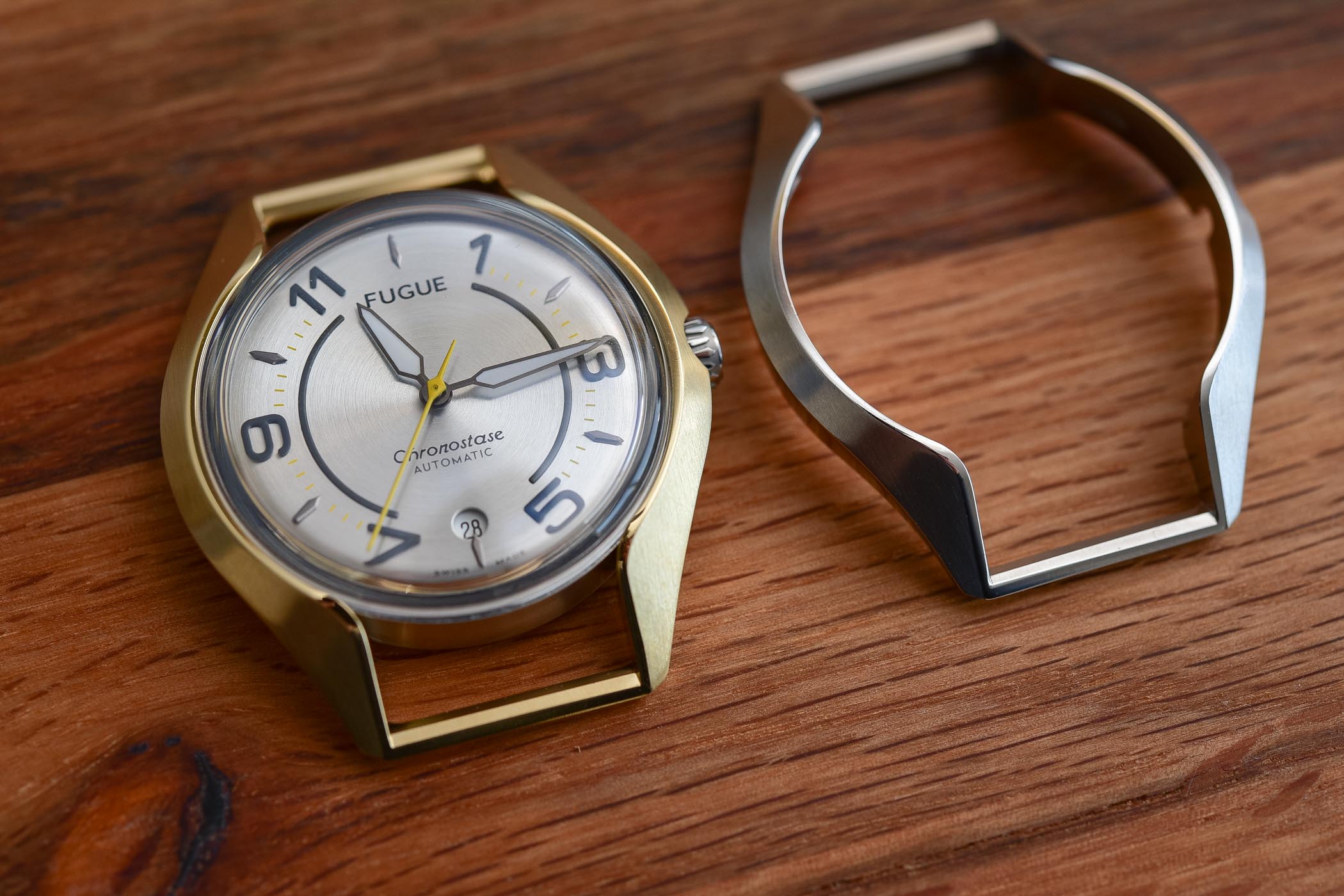
Modularity has become a big thing in the watch industry, with more and more embracing the concept of customisation (at least for some very high-end brands) and interchangeable strap/bracelet system – think Vacheron Constantin, Maurice Lacroix or Cartier. Yet, in the end, you have the same watch on a different strap. Certainly a nice first step and a good idea, but some thought they could go several steps further in this field of modularity. Meet Fugue Watch and the Chronostase, an accessible microbrand that allows you to change the strap AND the case of your watch in less than a minute.
A singular approach to modularity
In today’s context, modularity and the ability to customize your belongings have become more than a trend. For years, the car industry allowed ordering your car with a fully personalized configuration. However, the watchmaking industry is always a bit slow to embrace trends. It is only recently that we’ve seen mainstream brands offer easy-change systems on their watches so the clients could exchange a strap for a bracelet themselves, without the need to go to their local watch retailer.
While the interchangeable bracelet/strap systems are slowly inching into luxury brands’ collections, modularity usually stops here. In the end, you still have the same watch, with the same case and the same dial but on a different strap. Nice, but only a small first step.
When creating Fugue Watch, Leopoldo Celi thought about having a watch that could literally offer several faces. A French watch brand founded in 2017, named in reference to the elusive nature of time – the word fugue means ‘escape’ in French – the idea was to create watches with not only interchangeable straps but also a way to switch cases.
This lead to the creation of a new model for encasing the movement and the dial. Everything starts with a central module that comprises the dial, the hands, the movement, the sapphire crystal and the caseback. Round, simple and not really pleasant visually, but that’s not the point. The idea was to dress that container with carrures (or external cases), which could be switched in an easy way, without using tools.
The central module is equipped with ball bearing locks to securely hold the case in place around the container. Then, it’s just a few steps to drastically change the face of the watch. It all starts with an easily removable loop strap which slides under the case. Once removed, you have access to the watch head and by pushing on top of the glass crystal with your thumbs, the case separates into two parts – the central container and the carrure.
Once you have done that, take a second external case, clip it onto the central module, loop the strap back in place and voilà! You have a new watch.
For the moment Fugue only offers one design for the carrure, which is available in 3 different colours: steel, black PVD and gold-plated. However, we can easily imagine the brand introducing new cases in the future with different shapes to adapt to an existing central container – and thus offer a sporty case, an elegant case or one with a rotating bezel for example.
How does that translate in real life?
Because images are better than words, here is exactly how to change the strap and case on the Fugue Chronostase:
In all honesty, the video is even rather slow in switching cases… But you get the idea. Our hands-on experience confirmed that not only is the device easy to use but also well-adjusted and secured. Once in place, the carrure is firmly attached to the central case.
The Fugue Chronostase
Modularity apart, the Fugue Chronostase is a nicely designed and manufactured watch. Its shape is rather special at first, due to the interchangeable case and strap systems, but it feels fresh, original and not overly done. It remains, once on the wrist, compact and discreet enough. It has a hint of 1960s inspiration, however, in an overall contemporary package.
The case measures 40mm in diameter but feels smaller – at least in width. Due to integrated lugs and rather hefty sides, the case has some presence – confirmed by the 47mm lug-to-lug dimension – but wears well on most men’s wrist. The external cases are available in 3 colours: black, steel or gold, suitable for most environments. You can go classic with steel, dressy with gold or toolish with black. The finishing is clean and precise, with polished sides and brushed top surfaces.
The dial also follows the same idea with an overall classic design, enhanced with nice details. Four colours – silver, white, blue and black – are available. Three of them feature a circular brushed plate that offers nice reflections. Only the white version has a matte dial. The layout relies on a modernized sector-style design with an applied ring, numerals and indexes – all nicely done. The hands are coated with Super-LumiNova. All of them feature colours accents, like a yellow track and seconds hand on our model.
Powering the watch is a reliable Swiss automatic Sellita SW 200 movement, a clone of ETA. This tried-and-tested calibre provides hours, minutes, seconds and a date window positioned at 6 o’clock. It is hidden behind a solid steel caseback.
Price and Availability
The Fugue Chronostase is available for a price of EUR 1,270. Certainly not the most affordable of watches from a microbrand, -but for that price you’ll get a well-crafted watch with a Swiss Made Sellita movement, a central container (with dial and movement), two carrures (external cases) and two straps (one perlon and one leather). Extra cases and straps can be ordered later for respectively EUR 150 (cases), EUR 40 (perlon straps) and EUR 70 (leather straps).
The Fugue Chronostase is available through the brand’s website here.

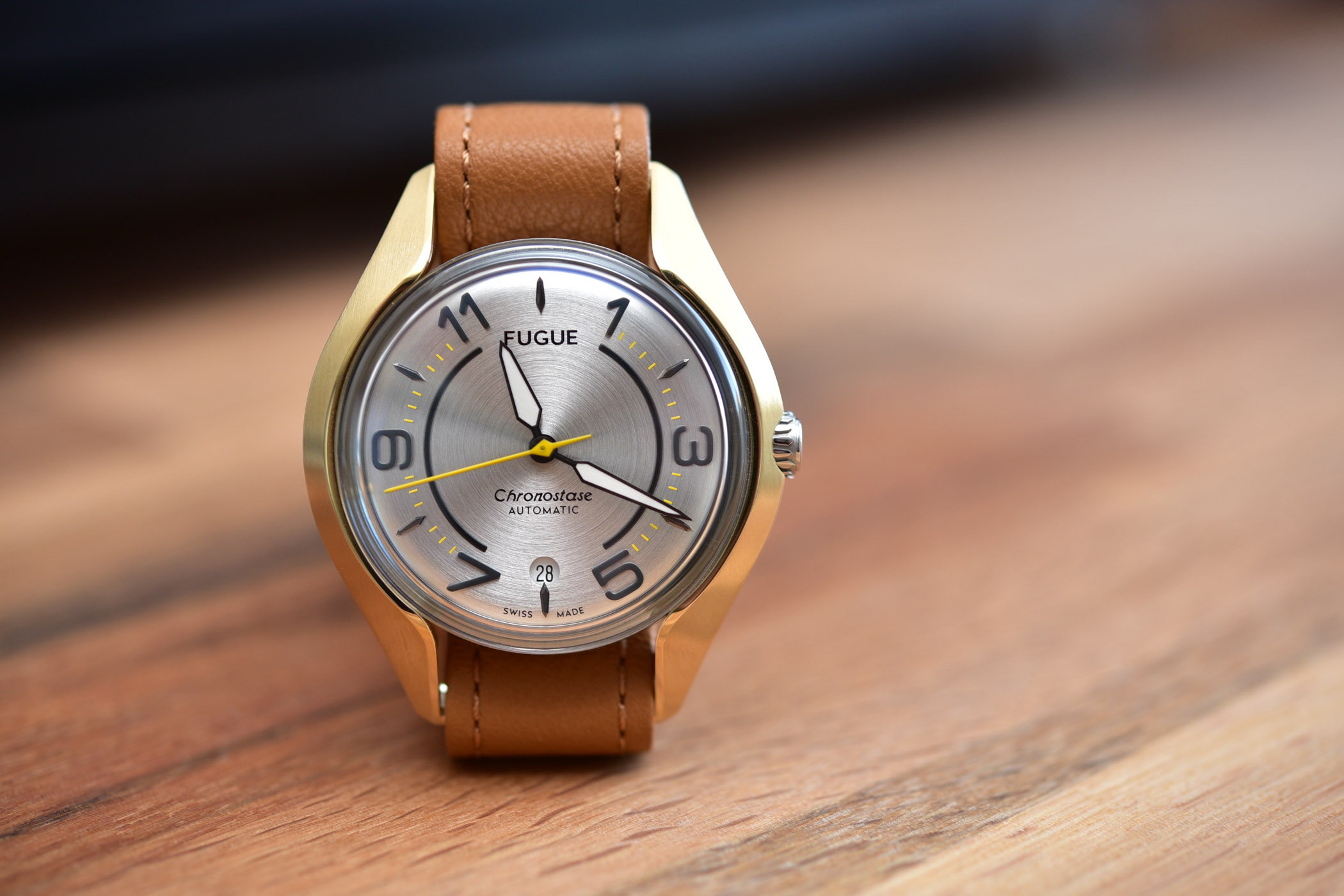

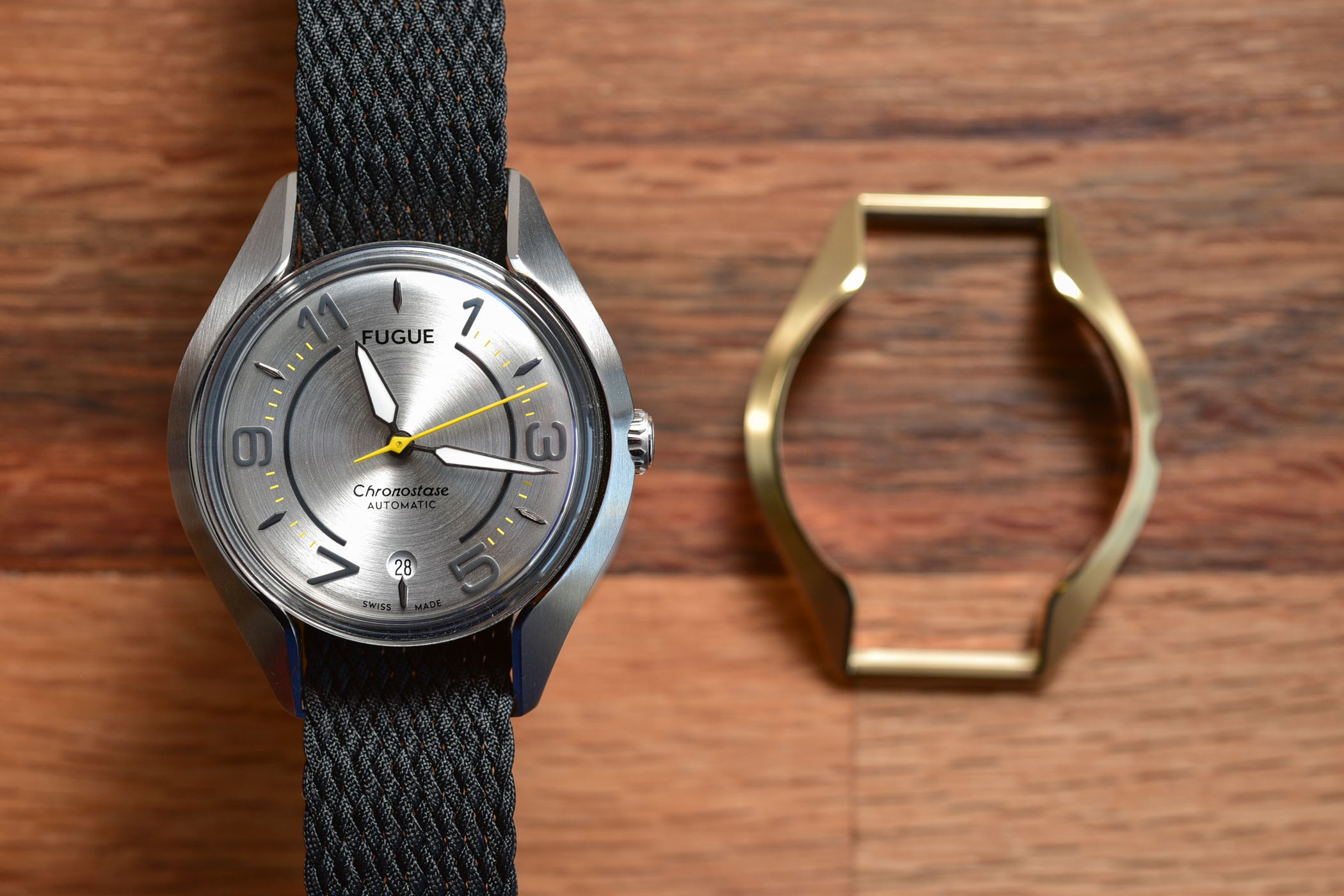
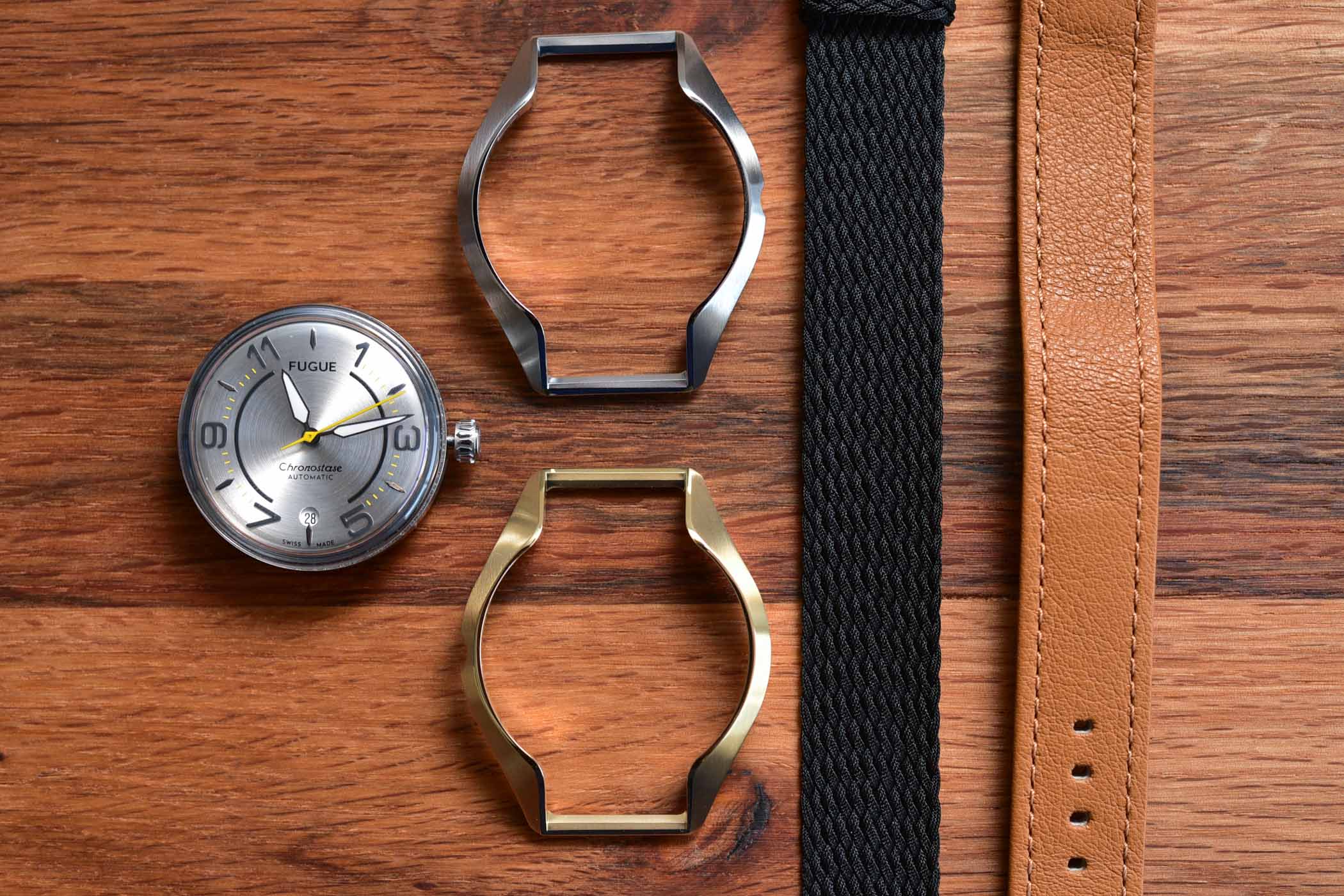
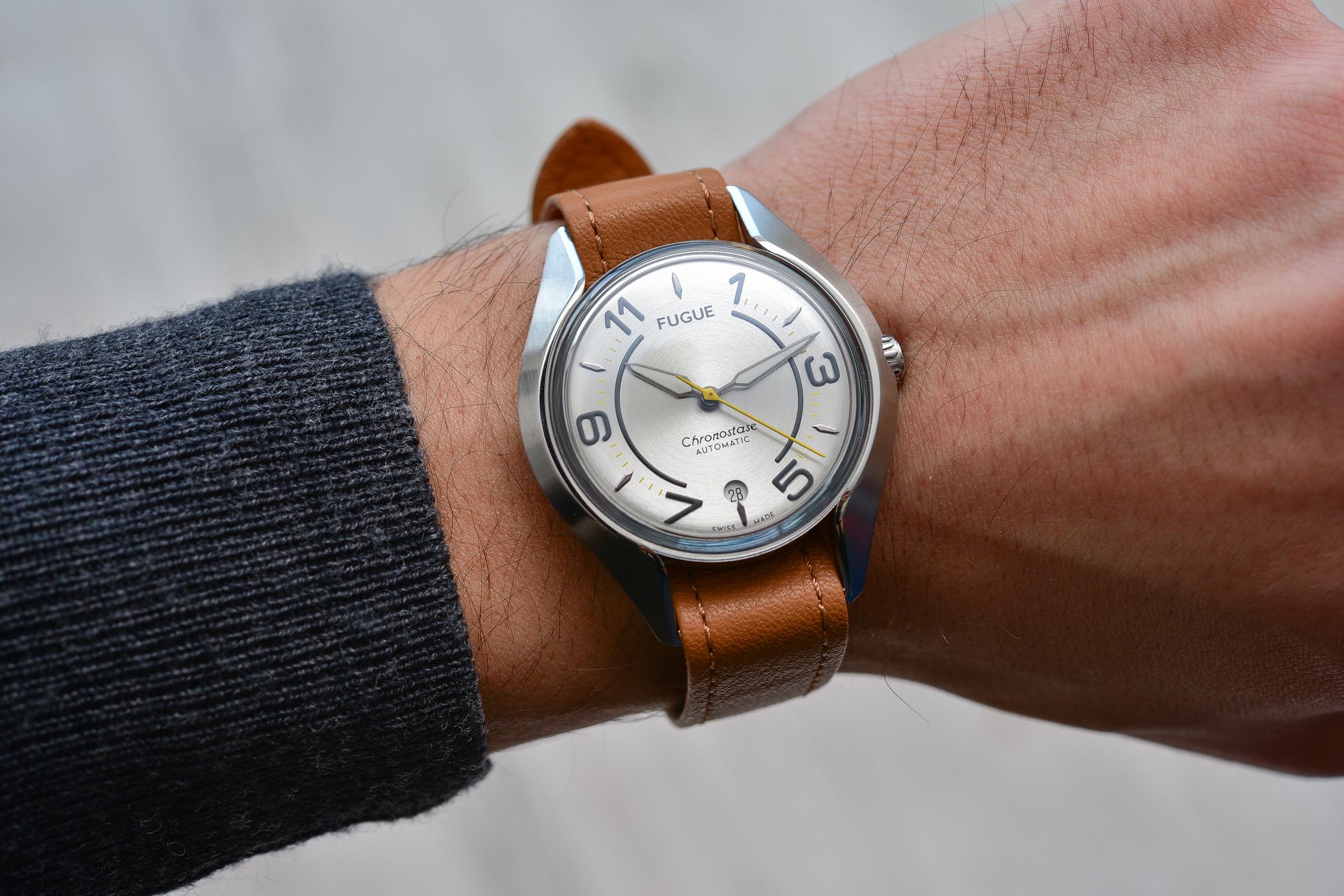
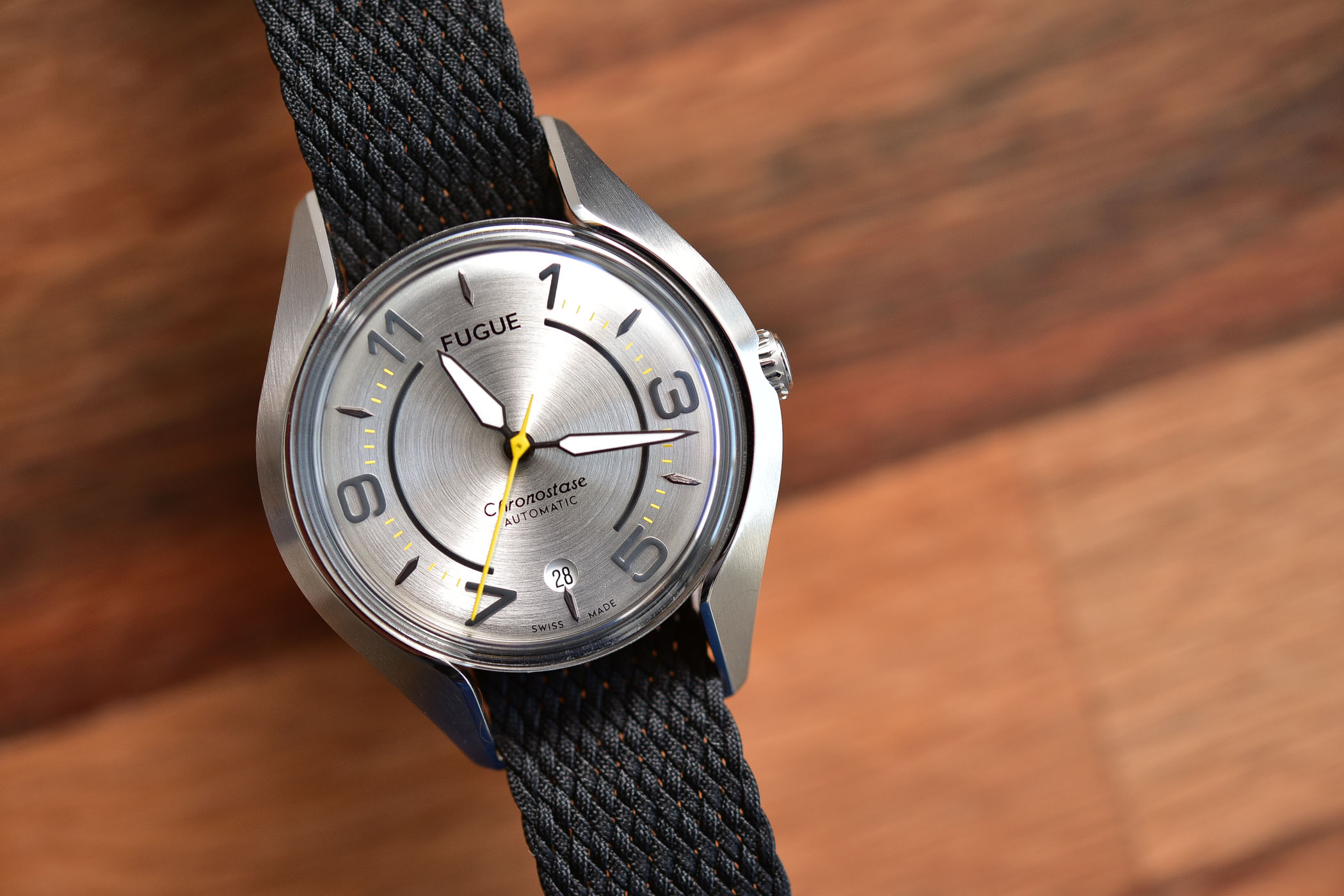
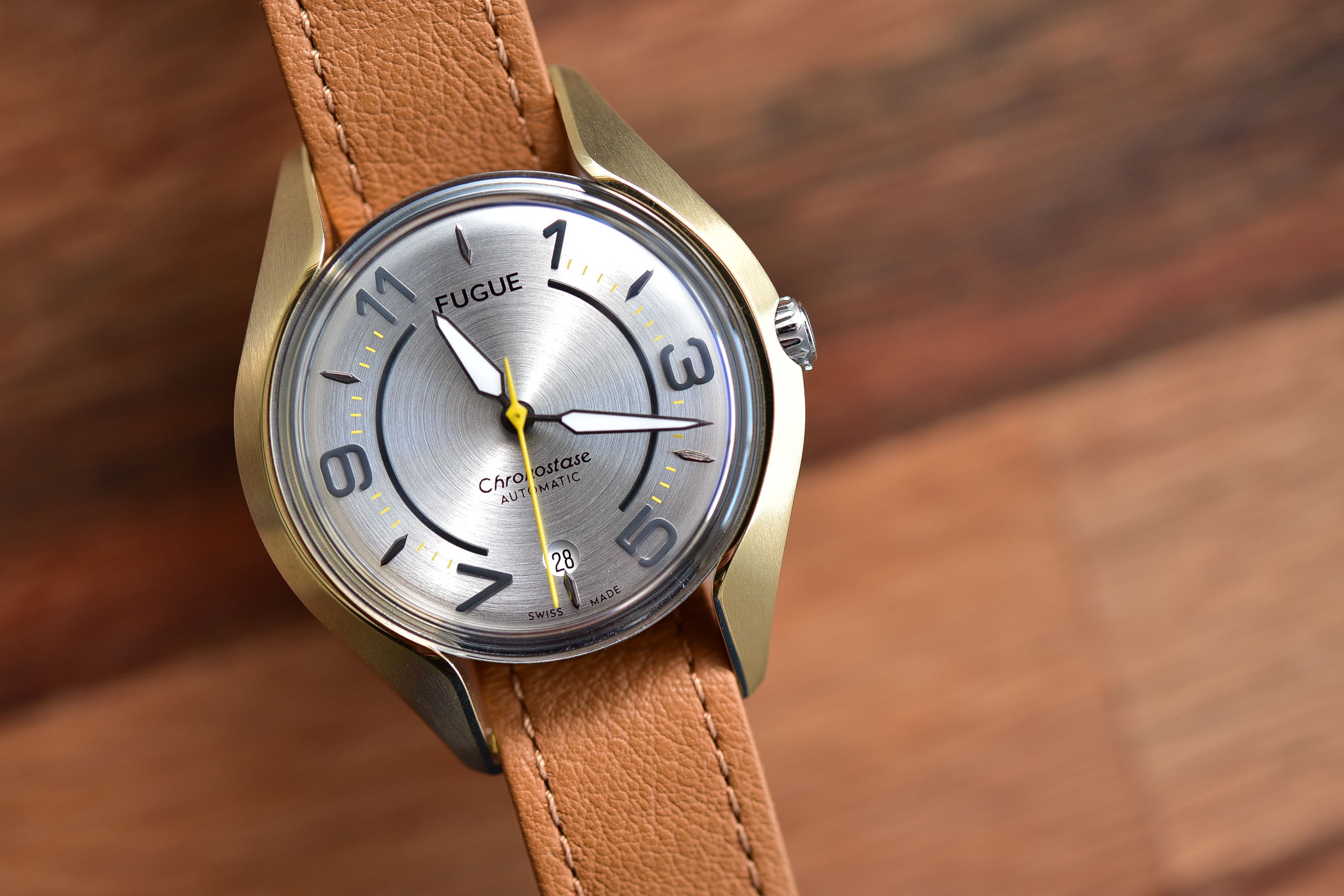
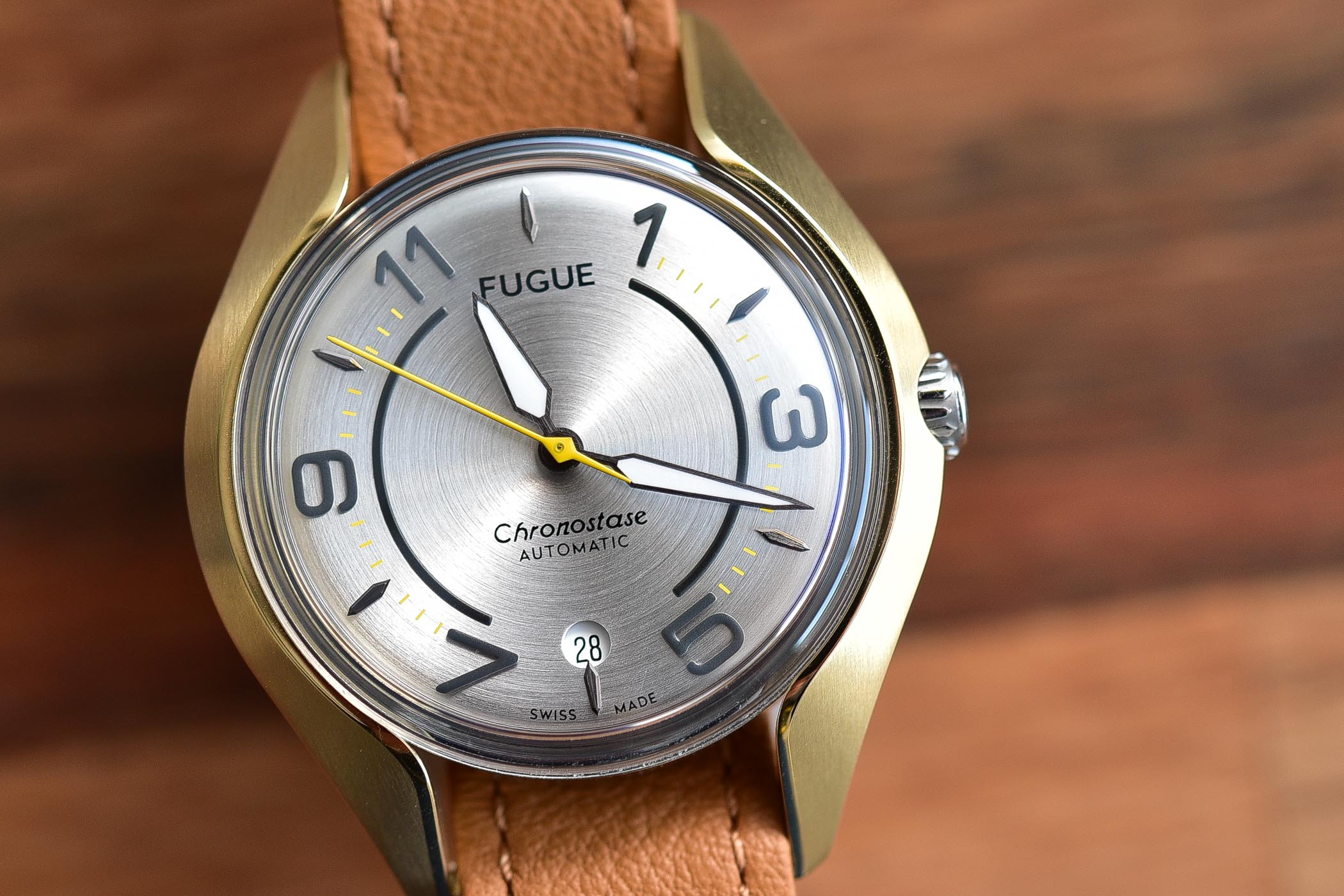
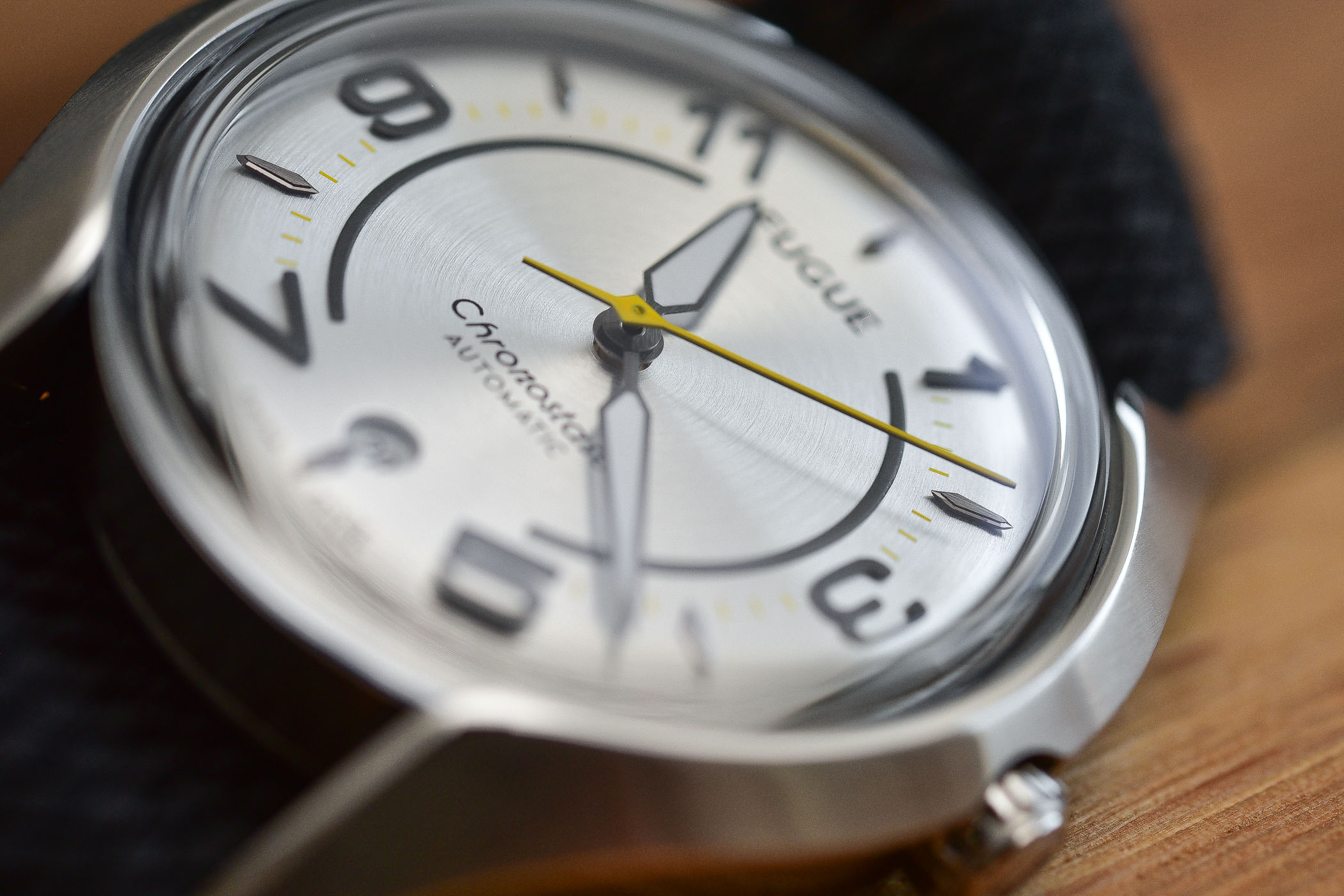
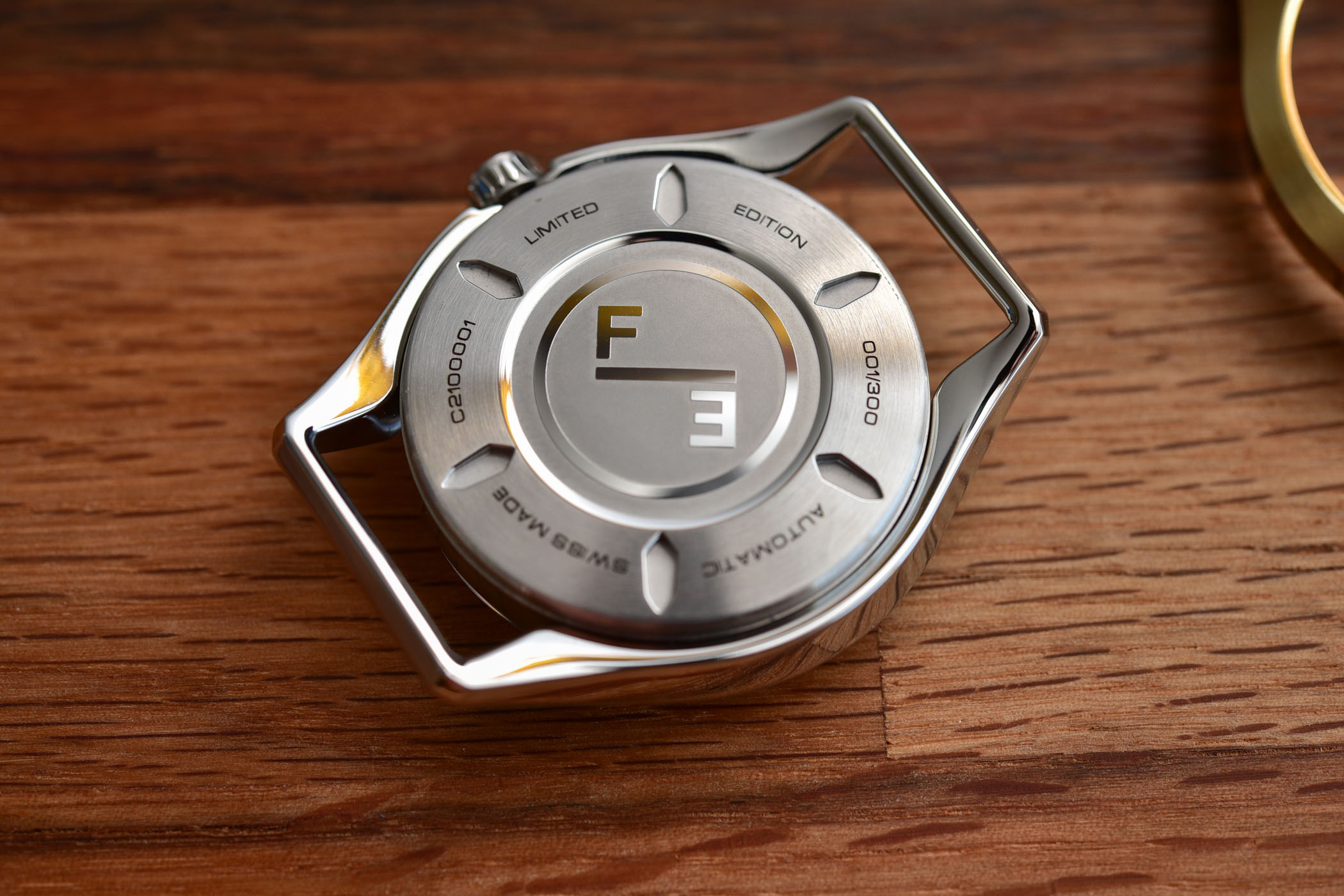
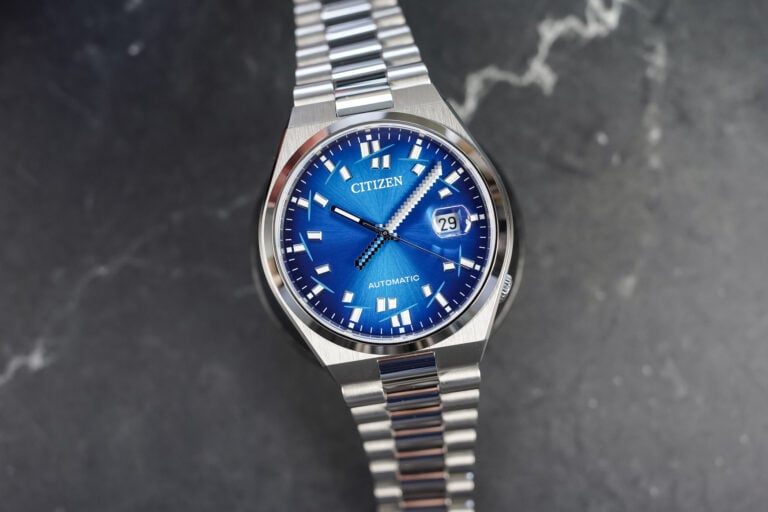
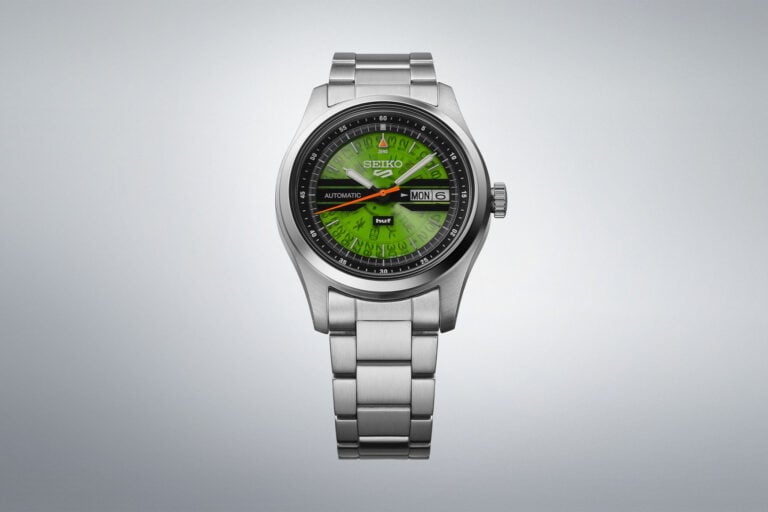
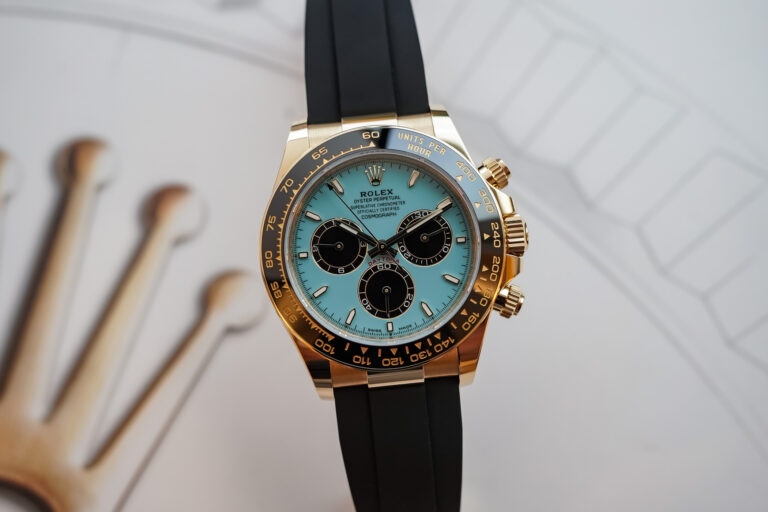
3 responses
Yep, I like that idea.
Nice clock, but the numbers are strange.
Did not like!
No, thank’s…